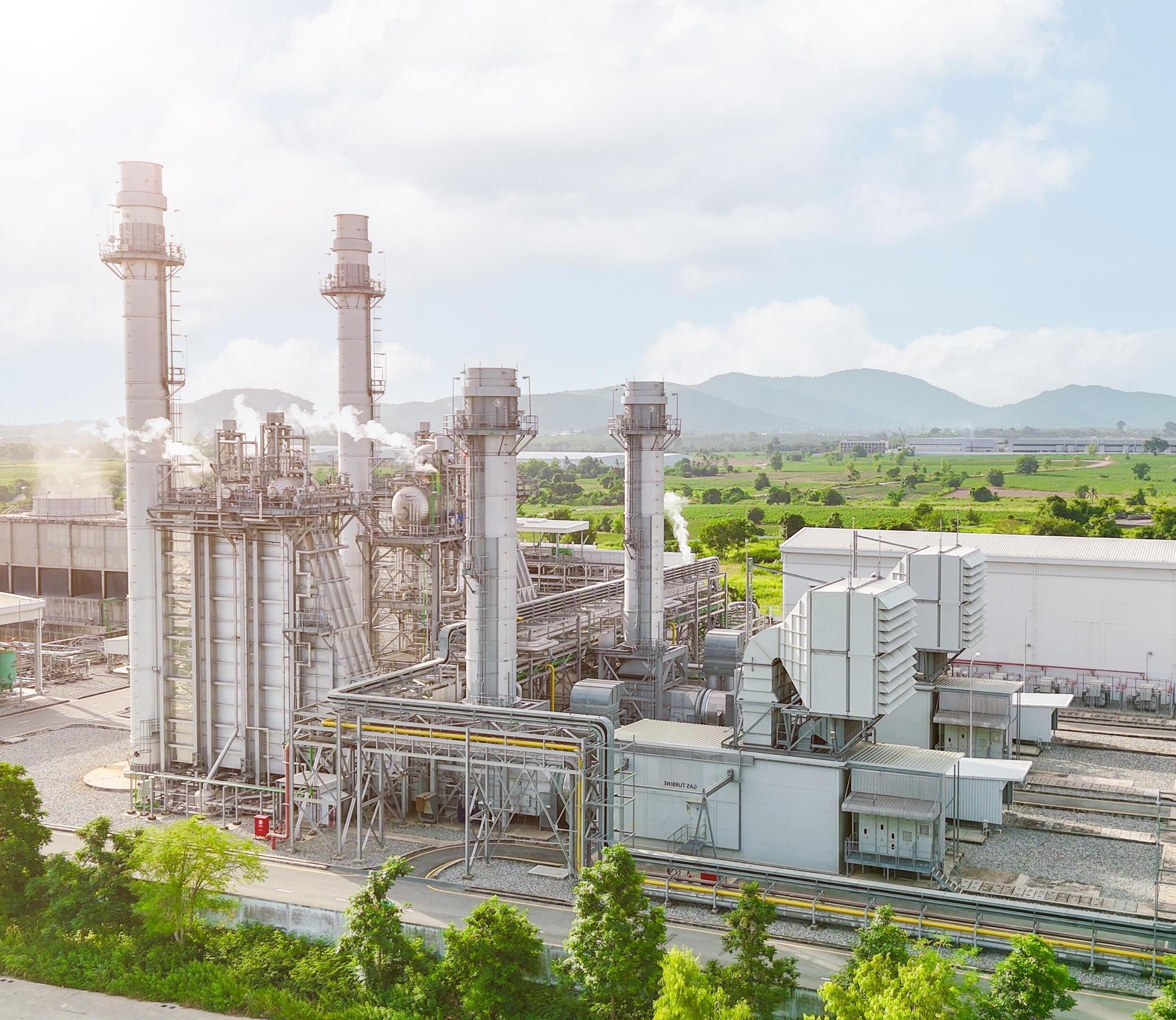CRI (CLEAN REFINERIES INC) THE FUTURE, REFINED
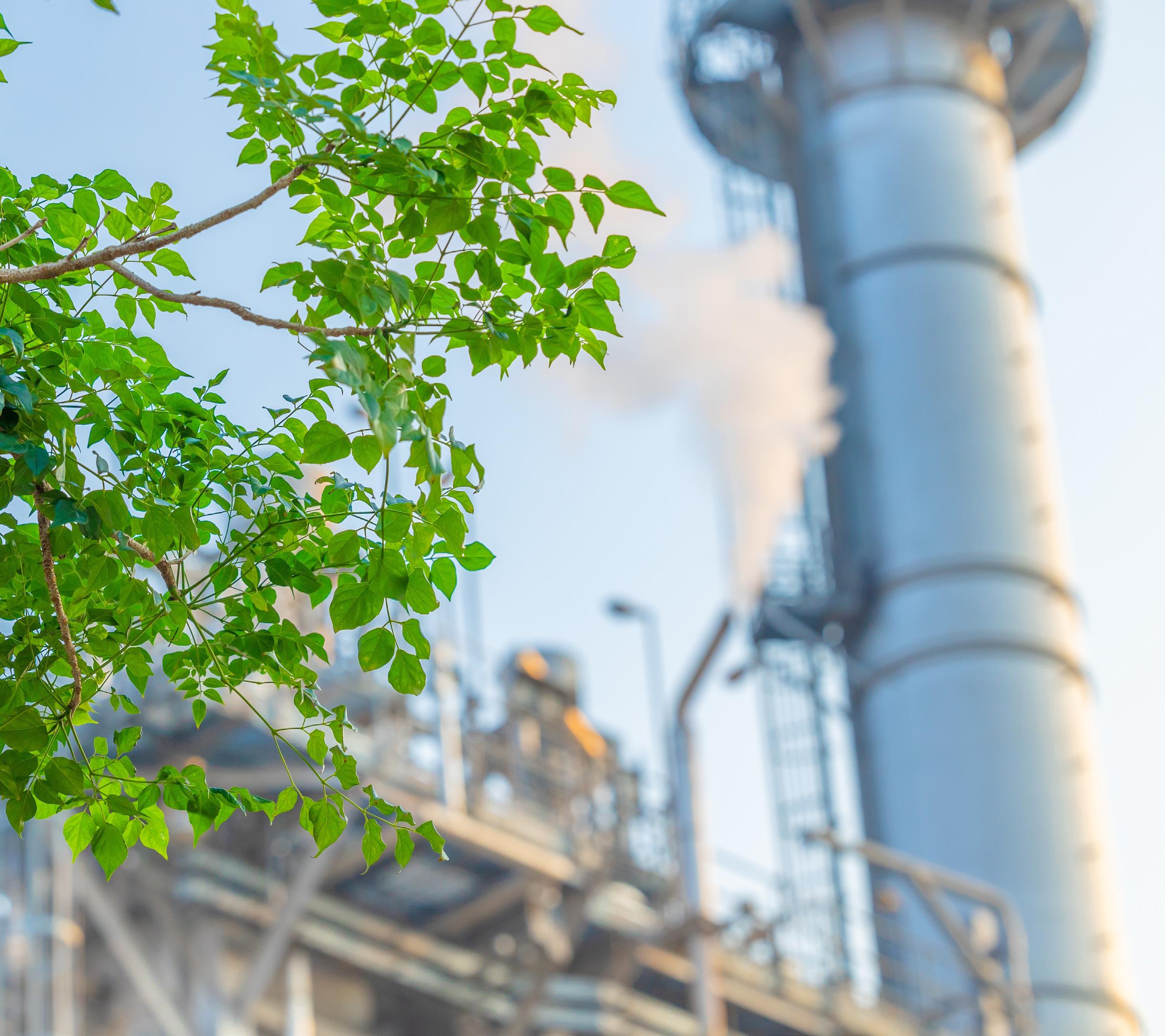




CRI does things differently. As developer of an advanced, patented hydrocarbon processing technology designed to achieve net-zero greenhouse gas emissions, the company is set to disrupt and redefine an industry.
Efficient, cost-effective, and environmentally responsible, CRI’s hydrocarbon processing solutions enable the production of various high-value products, such as asphalt, kerosene, diesel, gasoline, and aviation fuel. The difference? These products – which traditionally utilise environmentally harmful manufacturing processes –can now be created without any meaningful damage to our planet.
“At CRI, we see ourselves as a technology company,” says CEO Derek Williamson. “Our technology allows us to do everything a standard refinery does, but in a different and more sustainable manner. Facilities adopting our technology are able to operate more efficiently, at lower temperature, lower pressure, without the regulatory oversight that you would expect for a regular refinery.”
Taking a completely fresh approach to a traditional practice, CRI’s hydrocarbon
processing technology utilises a closed loop system and is highly economical thanks to the system’s ability to recycle heat. Modular reactor units make for increased flexibility, while multiple units can be chained together to achieve higher capacities.
“It’s like when the auto industry switched from the carburettor to fuel injection,” Derek states. “CRI technology gives you the same results as always, but the process is more efficient and less energy intensive.”
To help take its technology to the world, CRI established Green Fuels Operating (GFO) –an operating subsidiary focused on developing and revitalising scalable hydrocarbon processing facilities. These rejuvenated facilities can bring clean energy solutions and economic opportunity to local communities across the United States and beyond.


stages of
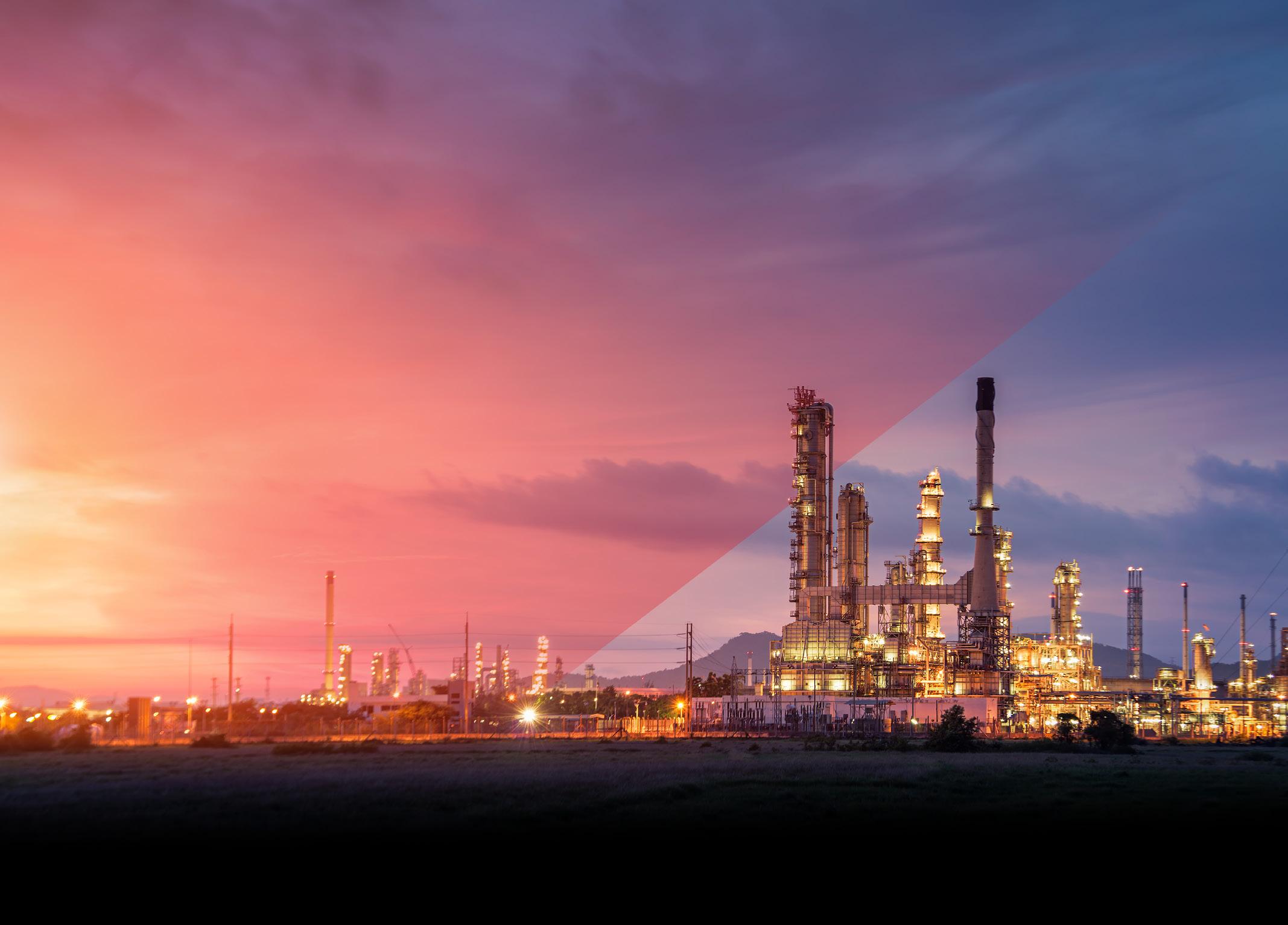
STRATEGIC PARTNERSHIP FOR SCALABLE REFINERY DEVELOPMENT
BrandXepc is proud to explore a partnership with CRI for refinery infrastructure development projects in Oklahoma, Texas, and Louisiana. This collaboration reflects our shared commitment to innovation, efficiency, and long-term value creation in the energy sector.
Our contributions span the entire lifecycle of development. We begin with comprehensive feasibility studies and site assessments, evaluating environmental, logistical, and economic factors to guide optimal site selection and project strategy. Next, we work in close coordination with CRI’s engineering teams to design modular refinery units optimized for feedstock flexibility and throughput.
BrandXepc will lead project management and construction oversight, ensuring alignment with budget, scheduling, and regulatory frameworks. Our approach emphasizes disciplined execution, risk mitigation, and quality assurance throughout the build phase.
Technology integration will further enhance facility performance. We bring experience implementing advanced refining systems, including energy-efficient solutions and scalable emissions controls, designed to elevate operational resilience and reduce lifecycle costs.
BrandXepc’s flexible modular model and procurement strategies allow us to adapt quickly to market demands and site-specific requirements. By anchoring our approach in transparency, performance, and cross-functional collaboration, we aim to deliver refineries that set new benchmarks in the sector.
Together with CRI, we look forward to transforming bold ideas into resilient infrastructure—supporting regional development and expanding access to refined diesel products through smart, scalable design.
www.brandxepc.com
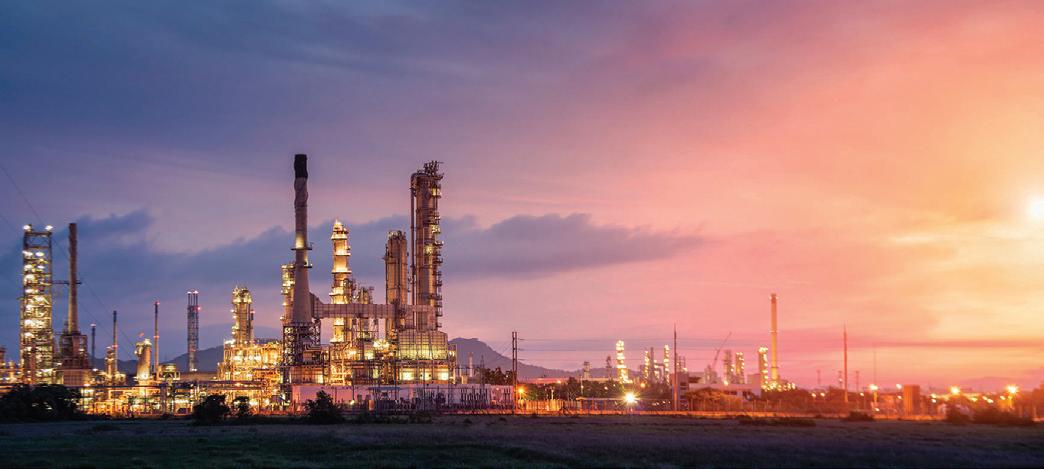
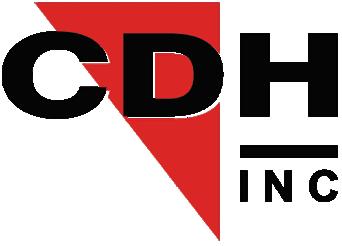
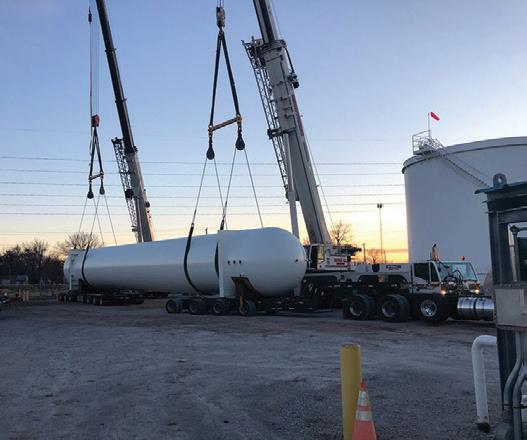
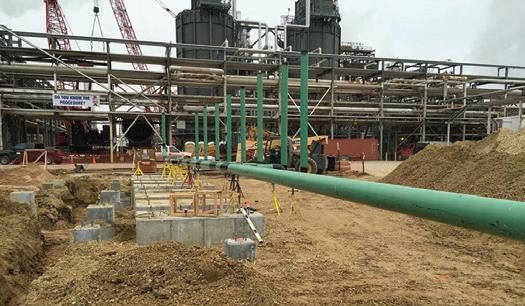

In early 2025, GFO announced its intention to invest $110 million to transform the Evangeline Processing Facility in Louisiana into a Net Zero Emissions Technology refinery. The upgraded refining unit will create around 60 new jobs and look to produce 20,000 barrels of marine-grade diesel and bunker fuel each day.
“The Evangeline site has a long history, but we are effectively continuing its tradition – processing and refining hydrocarbon – with cleaner, modern methods,” Derek affirms. “We will start with 20,000 barrels per day at the facility in 2026, but that could expand over time. It’s one of several sites in Louisiana that we are actively exploring for development.”
Offshore, CRI is utilising a mobile oceanic petroleum platform to gain a greater foothold in new markets. For instance, the organisation recently struck a partnership agreement with Bollinger Shipyards in Lockport, Louisiana, for work on the development of an on-ship refinery for the US Navy.
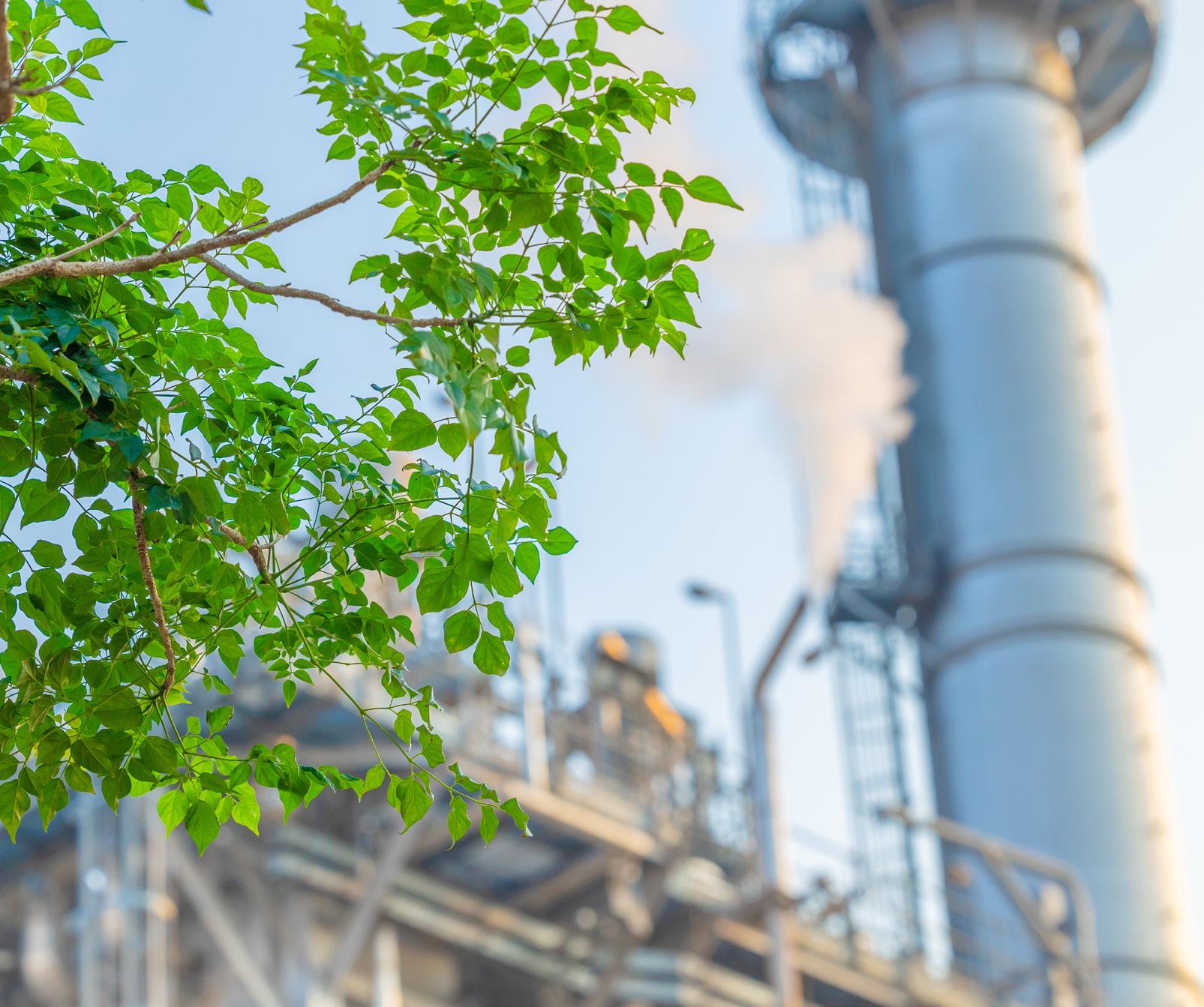
“WE ARE NOT IN COMPETITION WITH STANDARD REFINERIES BECAUSE TODAY, AS NATIONS LIKE THE US AND UK SHIFT TOWARDS GREENER PROCESSES, STANDARD REFINERIES ARE NOT BEING BUILT.”
“When the US administration changed in 2024, we knew defence would be a major priority for the Government,” Derek comments. “We took our patent and discussed the project with the US Appropriations Committee. The committee pointed us in the direction of Bollinger Shipyards in Louisiana, where all research and construction for on-vessel refining will take place.”
As its works on more and more unique projects, CRI finds itself in rarefied air as a business with, to all intents and purposes, no real competitors. Hydrogen plants are arguably the company’s closest business rivals and these entail long lead times and extremely high costs.
“We are not in competition with standard refineries because today, as nations like the US and UK shift towards
greener processes, standard refineries are not being built,” Derek remarks. “Innovative technologies like ours are going to take the place of some older, more traditional refinery practices. CRI is not the only option, but we are a very good option because our technology is clean, efficient, and costeffective.”
Key to CRI’s offering is the company’s open and collaborative partnership approach. Crucially, the organisation is not out to replace refineries – it is committed to supporting them, and in turn, improving the lives of communities across the world.
“We’re not here to replace anybody,” Derek declares. “We are here to work with people, bridging the gap between the upstream and downstream, and building mutually beneficial relationships.

“There is a very strong humanitarian side to what we do because we’re trying to create sustainable energy in areas that need fuel but do not have it anymore. In ranch states like Montana and Wyoming, people are being forced to drive 100 miles to get off-road diesel. We want to fill the energy void in these regions over the next decade. Once people understand what we do, they realise we are on their side.”
CRI is set to move into more major markets going forward, while working alongside standard refineries to help adapt, or transfer, their
processes. The organisation also has its eyes on expansion beyond the contiguous United States.
“We have potential projects in Manila and the Caribbean on the horizon,” Derek reveals. “We are also preparing for some work near Anchorage, Alaska, where we are co-operating with the state government to explore a large refinery project.”
As Derek suggests, CRI has built a pipeline of diverse, global projects. These will sit alongside a wide range of developments in the company’s established region of operation, including states like Texas, Louisiana, and Oklahoma.
“We’ve got six projects coming up in Texas and we’re currently active on a site in Victoria within the state,” Derek reports. “We are also pleased to confirm three projects in Louisiana, two in Oklahoma, two in Wyoming, as well as conditional ventures in the Mid-South and even New York State.”
“WE ARE LEADING THE WAY ON A NEW AGE OF REFINING, BUT I HOPE IN 50–60 YEARS, PEOPLE WILL LOOK BACK ON WHAT WE DID, BE INSPIRED BY IT, & BUILD UPON IT.”

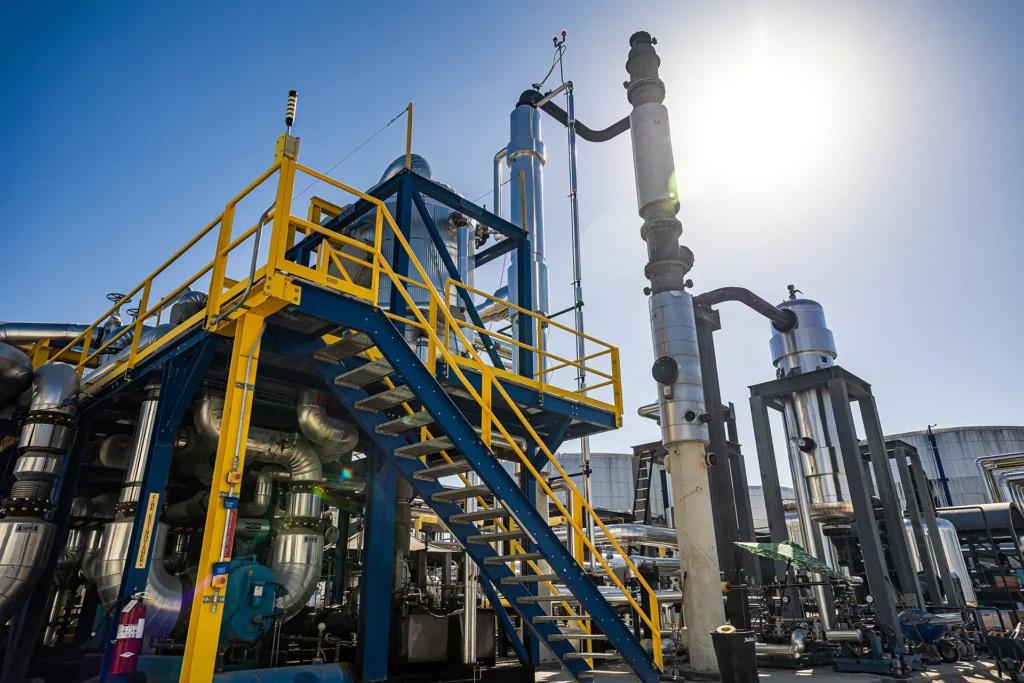
When it comes to picturing future success, Derek would like to see CRI with three to six facilities and 1 million barrels of production under its belt within the next seven years. In
order to do so, the CEO knows that communication, education, and perseverance will be key – so transformative is CRI’s technology, the future might depend on it.
“The more facilities we can gain over the next few years, the more sustainable energy we can bring to at-risk areas,” Derek concludes. “It won’t be easy because we are leading the way on a new age of refining, but I hope in 50–60 years, people will look back on what we did, be inspired by it, and build upon it – that would be the best compliment of all. For now, it’s just important that we continue communicating with the rest of the industry and then, proving our worth by delivering results.”

